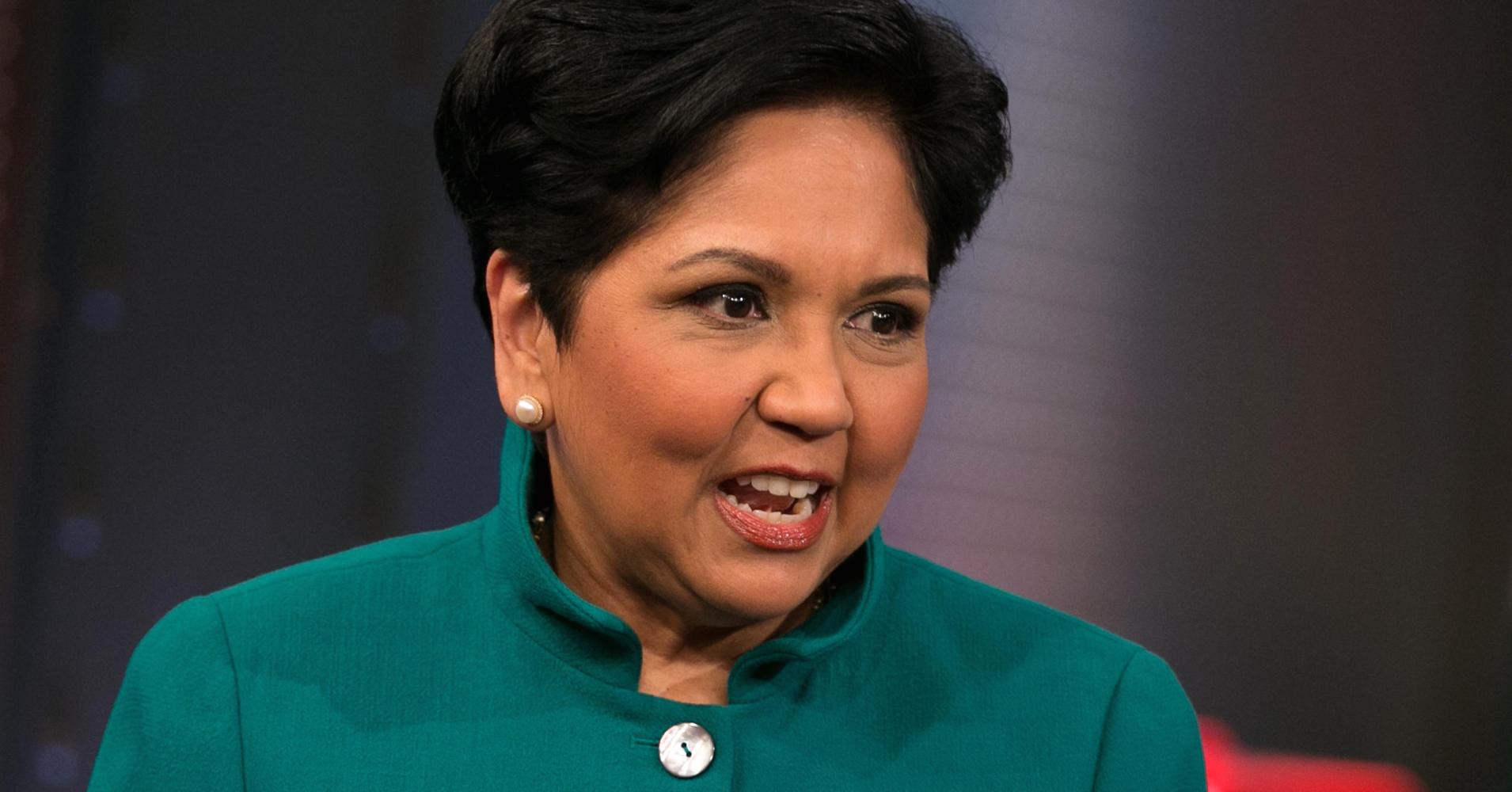Strength doesn’t come with titles. It comes from a sense of purpose, and Indra Nooyi’s career is one of my favorite examples of this truth.
Now chairwoman and CEO of PepsiCo (and the first woman to lead of the International Cricket Council), the Indian-born Nooyi boasts two master’s degrees — including one from the Yale School of Management — and a CV peppered with notable corporations, such as Motorola and Boston Consulting Group.
But it’s neither her career path nor her education that makes her influential. What sets Nooyi apart is her tactical discernment, I think, from what I’ve read and observed about her career. Entrepreneurs and leaders can use this kind of discernment, their understanding of people, to better contextualize their own approaches to the ground game.

Leading with people in mind
From simple practices to companywide initiatives, Nooyi’s leadership reveals a fundamental focus on leading with people in mind. For instance, she annually sends out hundreds of handwritten “brag” notes to both employees and employees’ parents, thanking employees for their service and employees’ parents for the gift of their children.
Additionally, and even in the face of dubious investors, she’s made it clear that PepsiCo will help combat obesity rather than add to the global problem. As American culture in particular shifted away from sugary drinks, PepsiCo began to suffer. To combat this downward trend, Nooyi made several major changes. By offering a trio of product lines — “Fun for you,” “Better for you,” and “Good for you” — PepsiCo turned the Tropicana and Quaker Oats acquisitions into health-conscious assets that diversified its portfolio and revitalized the company’s image and profitability.
As a daughter of Indian parents like Nooyi, I also understand her drive to succeed on a more personal level. My career path likewise involves making frequent judgment calls, and I lean on my understanding of Nooyi’s leadership philosophy and her candor to bolster my decisions. She speaks directly but not without kindness, in a “performance with purpose” manner — a principled approach that means doing the right thing for employees, customers, and shareholders.
Ultimately, being entrepreneurial and a successful leader is a mindset, I think. Toughness, scrappiness, making do with what you have, believing that you don’t have a golden parachute to save you — all of this leads to this sense of “I have to succeed with what I have.”
Three empathetic leadership strategies that work:
1. Never lose sight of the human in the office.
All people are looking to make an impact in their own way, in their own lives. By highlighting the human element of the workplace, you can help align everyone’s values with the company’s and you can exhibit the respect you have for your team members. You can even bolster relationships in the workplace by remembering special occasions and explicitly valuing others’ contributions — those that are both work-oriented and non-work-oriented.
According to a study in the U.K., employees would happily exchange a bigger salary for a less-transactional work environment. Simply put, compassionate leaders motivate.
2. Conduct business with a bigger purpose in mind.
Profits and quarterly earnings are essential, trackable identifiers of a company’s health, but these numbers aren’t everything. Leaders like Nooyi keep their eyes on a bigger purpose and embed that purpose in the company’s essence. When done correctly, this perspective, which should include a moral component, also helps steer employee choices and gives employees a larger stake in the company’s role.
Moreover, and far from negatively impacting profitability, it can ingratiate your company with your consumers, because consumers want brands to stand for something.
3. Be so good you can’t be ignored.
Any woman in any field can apply this mantra to her moves. The corporate world is one still biased and hampered by discrimination. For women to move past traditional career barriers, they must overcome challenges by making themselves known, valued, and essential.
By learning from prime examples like Nooyi, we can also bring humanity to the foreground, conduct business for a larger purpose, and be so good we can’t be ignored. We, too, can become a stronger steward for our companies while becoming role models for others.

